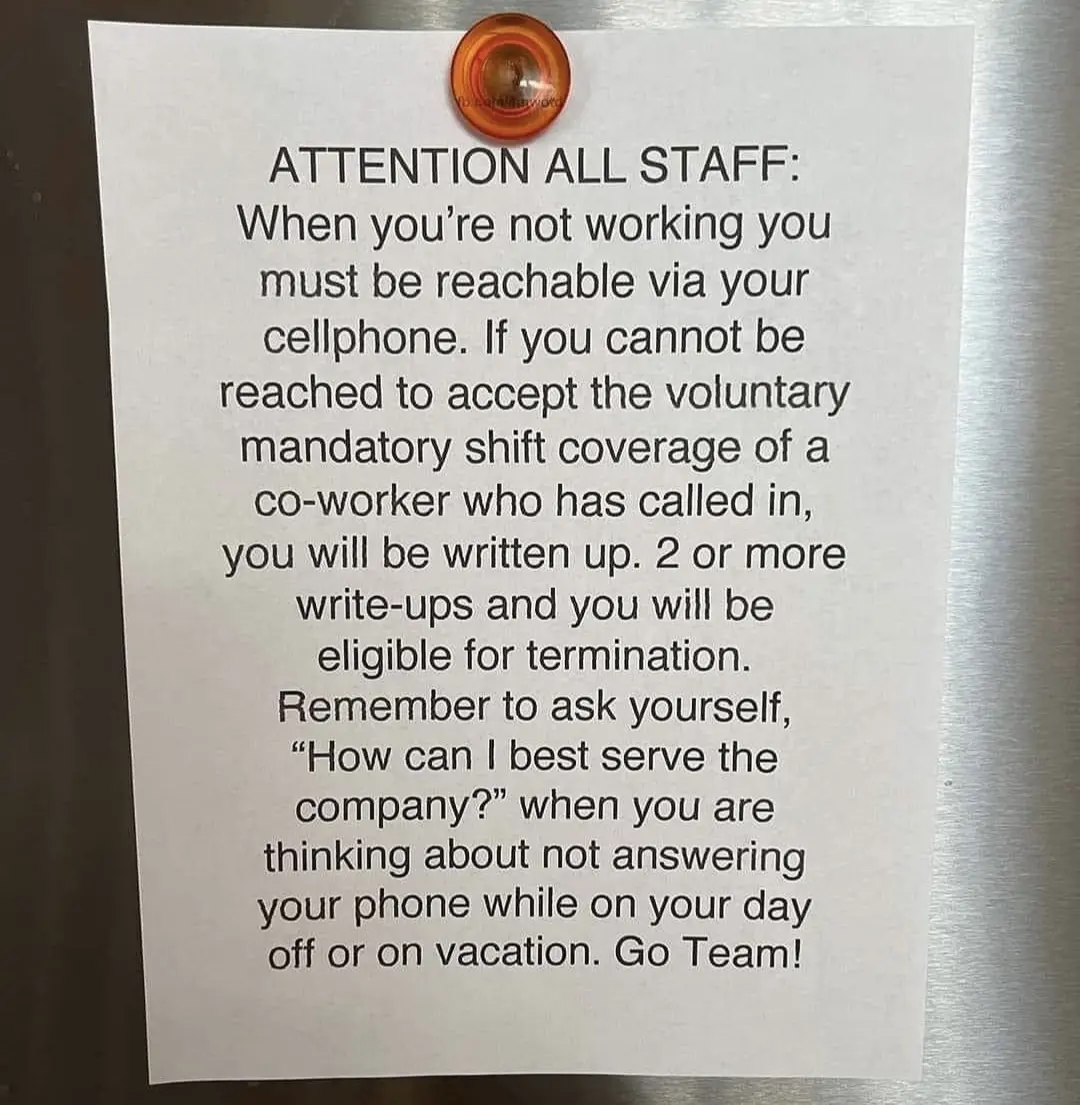this post was submitted on 26 May 2024
593 points (97.0% liked)
196
16883 readers
1474 users here now
Be sure to follow the rule before you head out.
Rule: You must post before you leave.
founded 2 years ago
MODERATORS
you are viewing a single comment's thread
view the rest of the comments
view the rest of the comments

Required to be by the phone = on the clock. This will be a lot of overtime for everyone.
This is incorrect in most states.
The tenth circuit of appeals came up with this test to determine if the employers restriction constitutes on call hours as hours worked.